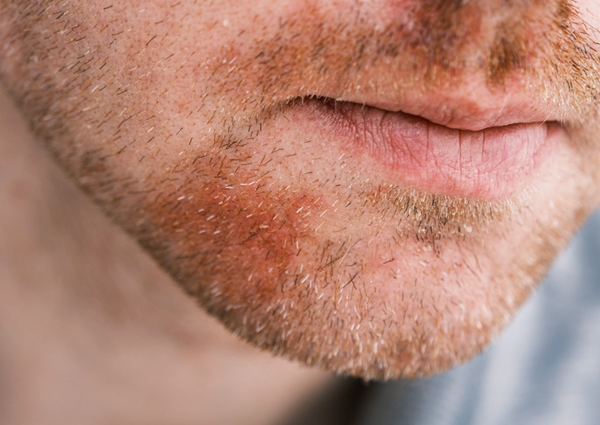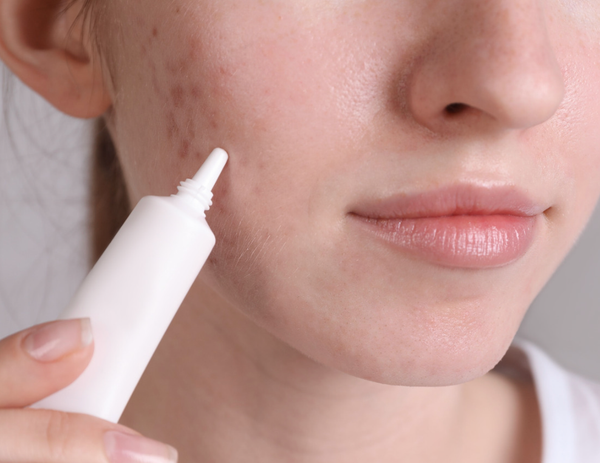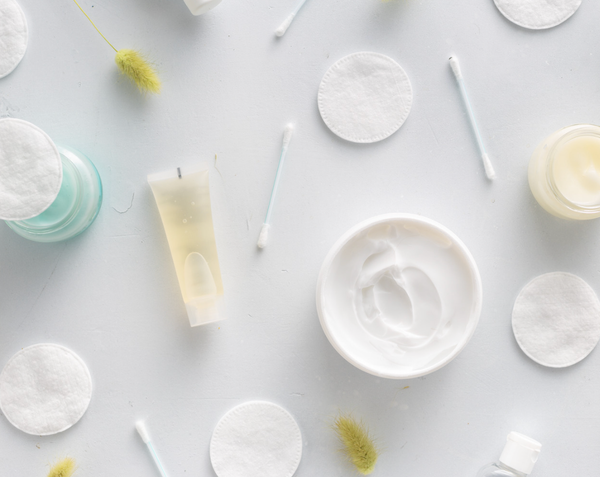Perioral Dermatitis
Redness and a pimple-like rash around the mouth?
It could be perioral dermatitis.
Learn about symptoms, causes and effective treatment with Dr. Dropin.
Book an appointment with a dermatologistIt could be perioral dermatitis.
Learn about symptoms, causes and effective treatment with Dr. Dropin.
Book an appointment with a dermatologist
✔️ Redness and rash around the mouth
✔️ Small pimples or pimples
✔️ Dry, flaky or scaly skin
✔️ Burning or itching sensation
✔️ In some cases, the rash can spread to other areas of the face

The exact cause is unknown, but several factors may play a role:

Our dermatologists will first make an accurate diagnosis and rule out other skin diseases. Treatment may include:

✔️ Avoid long-term use of cortisone creams on the face and nasal sprays
✔️ Use mild, perfume-free skin care products
✔️ Be careful with strong cosmetic products and sunscreens
Book an appointment with a dermatologist
Early diagnosis is important: Many people wait too long to see a doctor, which can prolong the course of the disease.
Treatment time: Treatment usually takes up to 12 weeks.
Relapse can occur: Especially if the treatment is not sufficient.
Good prognosis with treatment: Proper treatment usually gives good results.
Untreated can cause long-term problems: Untreated perioral dermatitis can last for months or years, affect mental health and lead to scarring.
Book an appointment with a dermatologist
Online treatment: A good and less expensive alternative to physical consultation.
How it works: The patient uploads pictures and describes symptoms.
Dermatologist assesses: The images and information are assessed by a dermatologist.
Diagnosis and treatment: The dermatologist provides a diagnosis and recommends treatment options.
Read more about image consultation with a dermatologist
First step: Book an appointment with a dermatologist at the first sign of symptoms.
Early diagnosis and treatment: The earlier you get help, the faster you can get rid of the problems.
Be open: Inform the dermatologist about all medication, skin care products and cosmetics you use.
Detailed information: Be prepared to answer questions about what you use to dry your face and other substances that may have been in contact with the skin.
Thorough assessment: The dermatologist will use the information to find the cause of the rash and give you the right treatment.

✔️ Quick access to experienced dermatologists
✔️ Thorough examination and diagnosis
✔️ Effective treatment and follow-up
✔️ Advice on prevention and skin care

Perioral dermatitis is a common form of a rash that is not contagious.
Perioral dermatitis is a common form of a rash that is not contagious.
Gluten intolerance or an undiagnosed allergy can be one of the main triggers for perioral dermatitis. Going on a low-carb gluten-free diet can help stop the condition from getting worse. In addition, one should look at avoiding salty and spicy meals while suffering from the condition.
Gluten intolerance or an undiagnosed allergy can be one of the main triggers for perioral dermatitis. Going on a low-carb gluten-free diet can help stop the condition from getting worse. In addition, one should look at avoiding salty and spicy meals while suffering from the condition.
Although there is no concrete evidence, some people have noticed that the condition of their perioral dermatitis gets worse when exposed to sunlight.
Although there is no concrete evidence, some people have noticed that the condition of their perioral dermatitis gets worse when exposed to sunlight.
While perioral dermatitis is not caused by hormones, a number of hormonal factors can contribute to the worsening of the condition, especially during pregnancy, during the premenstrual period and/or due to the use of contraceptives.
While perioral dermatitis is not caused by hormones, a number of hormonal factors can contribute to the worsening of the condition, especially during pregnancy, during the premenstrual period and/or due to the use of contraceptives.
The treatment depends on the severity and cause of the condition. Common treatment methods include stopping the use of cortisone creams, using antibiotics (oral or topical), and switching to mild, fragrance-free skincare products. In some cases, lifestyle changes may also be helpful.
The treatment depends on the severity and cause of the condition. Common treatment methods include stopping the use of cortisone creams, using antibiotics (oral or topical), and switching to mild, fragrance-free skincare products. In some cases, lifestyle changes may also be helpful.
Yes, perioral dermatitis can recur, especially if triggering factors are not avoided or the treatment is not sufficient. It is important to follow the doctor's advice and be aware of any relapses.
Yes, perioral dermatitis can recur, especially if triggering factors are not avoided or the treatment is not sufficient. It is important to follow the doctor's advice and be aware of any relapses.
It is important to see a doctor as soon as you notice symptoms of perioral dermatitis. Early diagnosis and treatment can help reduce discomfort and prevent the condition from becoming chronic.
It is important to see a doctor as soon as you notice symptoms of perioral dermatitis. Early diagnosis and treatment can help reduce discomfort and prevent the condition from becoming chronic.